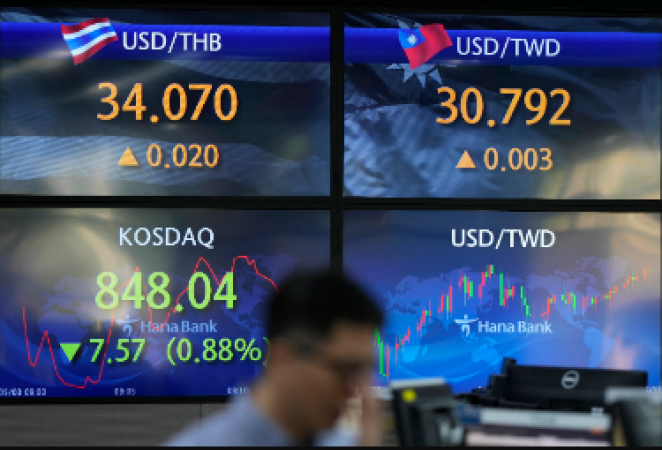
Washington: Following Wednesday's losses in Asian markets, European shares opened higher in anticipation of the Federal Reserve's interest rate decision.
Oil prices barely changed while U.S. futures increased. Wednesday was a holiday, so no markets were open in China or Japan.
The United States is edging closer to what would be a catastrophic default on its debt as concerns over struggling banks and a slowing economy mount.
The top four congressional leaders have been invited by President Joe Biden to face-to-face negotiations at the White House the following week in an effort to break the deadlock over the debt.
Also Read: Gig Economy and its Impact on Indian Youth
Later in the day, the Federal Reserve was anticipated to conclude a two-day policy meeting by increasing its benchmark interest rate by a quarter percentage point to 5%-5.25% in an effort to finally rein in inflation.
In trading in Europe, the CAC 40 in Paris and the German DAX both increased by 0.5% and 0.6%, respectively, to 7,425.17. The FTSE 100 in Britain increased 0.5% to 7,813.37. The Dow Jones Industrial Average and S&P 500 futures both increased by 0.2%.
Wednesday was a holiday, so no markets were open in China or Japan. The Hang Seng index in Hong Kong dropped 1.4% to 19,661.11. The S&P/ASX 200 in Sydney fell 1.1% to 7,184.90, while the Kospi in South Korea lost 0.9% to 2,501.40.
The Sensex in India dropped 0.3%, and stocks fell in Taiwan and Southeast Asia as well.
Tuesday saw a 1.2% decline in the S&P 500 and a 1.1% decline in the Dow. To 12,080.51, the Nasdaq composite fell 1.1%.
Also Read: FM asks ADB to support India with more concessional climate finance
Smaller and mid-sized banks, which have come under intense scrutiny as the banking system collapses under the weight of significantly higher interest rates, were responsible for some of the sharpest drops.
Western Alliance Bancorp fell 15.4%, PacWest Bancorp fell 27.8%, and Comerica fell 12.4%.
Investors are looking for the next bank that is likely to collapse or experience a crippling exodus of customers as three of the four largest U.S. bank failures in history have occurred since March.
At the beginning of this week, authorities seized First Republic Bank and sold the majority of it to JPMorgan Chase, which gave rise to hopes that the upheaval might subside.
Worries were increased when a report revealed that in March, American employers posted the fewest job openings in nearly two years. One of the main pillars supporting a slowing economy has been the job market; a decline there would probably signal a recession.
High rates have already had a negative impact on the banking system and the housing market. In anticipation of a recession later this year, many investors are getting ready.
Treasury Secretary Janet Yellen warned late on Monday that if a divided Congress does not approve additional borrowing, the U.S. government could default on its debt as early as June 1. That means the "X-date" is earlier than previously believed.
The idea that American government debt is the safest investment option is one that underpins a large portion of the financial system. Because the alternative is so bad, it is hoped that Congress will reach an agreement before the deadline, as it has many times before.
With only a few weeks until June 1, Congress may be compelled to approve a short-term extension rather than a long-term agreement.
Prior to the 2024 elections, "there could be a few debt ceiling deadlines," according to a report by UBS strategists under the direction of Michael Cloherty.
Also Read: Great Outlook on Indian economy: PM Modi on highest ever GST tax collection
The yield on the 10-year Treasury fell to 3.42% from 3.57% late on Monday in the bond market. But on Wednesday morning, it stood at 3.54%.
In other trading on Wednesday, New York Mercantile Exchange electronic trading saw U.S. benchmark crude oil drop 35 cents to $71.31 per barrel. On Tuesday, it lost $4.
The benchmark price for international oils, Brent crude, dropped 28 cents to $75.04 per barrel.
Late on Tuesday, the dollar dropped from 136.54 Japanese yen to 135.81 yen. The euro increased from $1.1003 to $1.1036.